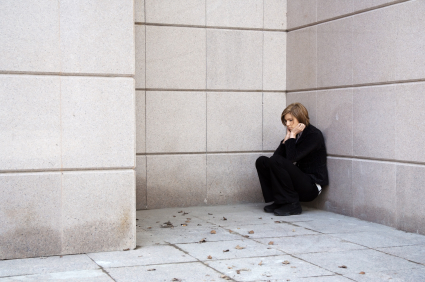
|
|
|
|
|
On This Page |
|||
I'm here to help you with a variety of problems that you might encounter during your studies. Below are links to the information on this page. I also appreciate that some of you may have pre-existing medical and psychological needs or may benefit from a physical evaluation (some psychological symptoms like exhaustion may be associated with a physical problem) or in the case of medication that can address your symptoms, I can refer you to local psychiatrists and physicians should medication be useful for you. I can also, with your permission, maintain continuity of treatment with your home country medical professional. |
|||

Being away from home, and far from your usual family and friends can be stressful. Feelings of homesickness are often part of the experience of study abroad. While these feelings are normal for most students, they sometimes increase or linger for long periods of time, and can interfere with your academic and social life. Often, lasting feelings of homesickness can result in withdrawing yourself from social activities, finding it difficult to concentrate and study, or eating and drinking too much. |
Treatment and OutcomesI help students recognize their feelings of homesickness and learn to manage these feelings so that they don't interfere with a good study abroad experience. I teach effective coping methods to help you adjust, make new friends, and enjoy your time here. return to top |
|
The rigors of travelling can produce stress on both your mind and body. The challenge of being in unfamiliar places and finding your way can add to the stress. Security screenings, confusing airports, passport and visa controls, travel delays, and an unfamiliar language can all add up to increased stress levels. Time, climate, and daylight changes can challenge even the most resilient traveller. |
Treatment and OutcomesI help you to learn effective stress management techniques to make travelling as enjoyable as possible. I can also help you adjust after your travels. return to top |
 The rigors of travelling can produce stress on both your mind and body. The challenge of being in unfamiliar places and finding your way can add to the stress. Venturing overseas to live and study in another country is like riding an emotional roller coaster from exhilaration to disillusionment, from discouragement to fulfillment, from one extreme to another. At almost every moment you need all of your resources to be patient, flexible and adaptable, all while maintaining your unique sense of self. |
Treatment and OutcomesI help students adjust to the realities of being in Paris with all it’s joys and complexities using gentle psychotherapeutic techniques to assist you in maintaining your joy, optimism and creative problem-solving skills in the face of a cross-cultural opportunity. return to top |
|
Living conditions abroad can be quite different from what you're used to at home. Differences in housing, food, and customs can be confusing or challenging at times. Sometimes, your setting may not have all of the conveniences that you're used to back home, such as air conditioning, computer connections, or convenience stores. In some cases, the physical strains of these differences can tax your ability to perform well academically. Coping with these conditions while trying to respond successfully to your challenging academic environment can be overwhelming at times. |
Treatment and OutcomesI help students to adjust to the local conditions they encounter and work with them to make the transition smoothly and successfully. return to top |
 The rigors of travelling can produce stress on both your mind and body. The challenge of being in unfamiliar places and finding your way can add to the stress. Going abroad is quite a bit like the first year of college, where concerns about fitting in are paramount. Will you meet new friends? Will people like you? Students feel a lot of pressure to quickly fit into the social system at their host community, and can be challenging to your identity. Pressure to succeed in the classroom, along with uncertainty about social and sexual relationships, cultural diversity, and many other pressures can overwhelm you from time to time. These pressures can sometimes cause you to isolate yourself or withdraw from things, which can lead to depression. |
Treatment and OutcomesI help students to understand the local culture and identify the social pressures impacting them so they can take control of their experience and find the best way to fit in with their peers. return to top |
|
Even with the best laid plans, unexpected things can happen while you're on study abroad. Bad news from home might cause you great upset, or things that happen at your host school here might cause anxiety. Bad news from home can be particularly hard to cope with because you don't have your well-established support system available to you. Students often feel isolated, frustrated, and alone when trying to cope with news from back home. |
Treatment and OutcomesI provide support, reassurance, and understanding to students who are trying to cope with bad news from home. I work with students to develop effective coping strategies so they can move forward toward their goals. return to top |
 The rigors of travelling can produce stress on both your mind and body. The challenge of being in unfamiliar places and finding your way can add to the stress. One of the most common and normal emotions we have is anxiety, also known as fear or worry. For most of us, we can remember a time when we felt "stressed out," or were worried about money, an unfamiliar situation, or what other people think. Usually, anxiety acts to protect us from harm and to keep us motivated in certain ways. For some of us, normal anxiety can become constant and/or excessive to the point of disrupting our quality of life, our daily routines, or our relationships. In some cases, anxiety can lead to panic. Anxiety disorders may develop from a complex set of risk factors, including genetics, brain chemistry, personality, and life events. Symptoms of a problem might include excessive worrying, feelings of panic, or changes in your body (such as restlessness, being tired very easily, inability to concentrate, irritability, muscle aches or tension, and/or problems with sleeping). Anxiety problems can often be effectively treated with cognitive-behavioral therapy. For many people, cognitive-behavioral therapy alone will be enough to overcome anxiety problems. In some cases, however, medication might be added as a complement to the therapy. Although anxiety problems are highly treatable, only about one-third of those suffering from an anxiety disorder seek treatment. |
Treatment and OutcomesI help students with anxiety learn to control their thoughts and feelings in order to feel more calm and confident in their life. return to top |
|
College can be a difficult time. Academic pressures to create quality work, finish assignments on time, write thoughtful papers, sit through sometimes tedious lectures, etc., are difficult enough at home and can be even more trying while on a study abroad program. Sometimes, difficulties can arise in your ability to focus, think clearly, and use good study habits. |
Treatment and OutcomesI help students learn effective coping strategies to deal with the pressures of academic life so they can succeed and achieve their goals. return to top |
 The rigors of travelling can produce stress on both your mind and body. The challenge of being in unfamiliar places and finding your way can add to the stress. Because of extreme stress, sometimes you can find yourself under-performing academically. You might find that the quality of your work has declined, you may have missed or done incomplete assignments, or even miss classes more than you would like. These are signs of stress, and left untreated, can begin to impair your performance. |
Treatment and OutcomesI help students recognize and gain control of the stress that comes with academic pursuits. I help them learn effective coping strategies to reach their goals. return to top |
|
Sometimes, we can find ourselves not quite feeling like our normal selves. Changes in behavior, appearance, or personality can be associated with major stress. For example, if you notice dramatic weight gain or loss, an inability to sit through classes, or unexplained tiredness or strange sleep patterns, you might be suffering from an overwhelming level of distress. |
Treatment and OutcomesI help students recognize changes in their behavior, and work with them to restore their normal ways of acting by teaching stress management techniques they can use to take better control over their lives. return to top |
 The rigors of travelling can produce stress on both your mind and body. The challenge of being in unfamiliar places and finding your way can add to the stress. Feeling down, and not quite like yourself can be caused by all kinds of events and transitions, for example, the end of a relationship or feelings of homesickness. Depression is sometimes not caused by external events, and is instead caused by your particular genetic makeup, in other words, your brain chemistry. Fortunately, there is treatment for both kinds of depression. Depression is one of the most common psychological problems, and one that most of us have experienced to some degree. It is estimated that one person in every family has experienced a depression severe enough to warrant psychological treatment. Some symptoms of depression include a depressed mood, loss of interest in activities that were once pleasurable, weight loss or weight gain, alterations in sleeping patterns (e.g., insomnia), feeling lethargic or agitated, feeling worthless or hopeless, being unable to concentrate, and loss of usual levels of energy. Depression can also be manifested in loss of concentration and memory, beliefs that things are bad and cannot get better, or a negative view of yourself. |
Treatment and OutcomesDepression can be treated by a combination of medications and therapy. Referral for a medication evaluation, if appropriate, will be part of the treatment plan. I help students learn to manage depressing their thoughts and feelings, which helps them have more energy, be more productive, and feel more in control of their lives. return to top |

It's not easy to control everything in life, and sometimes experimentation with drugs or alcohol can have disastrous results. If you have tried to control drug or alcohol use, but failed, you might have a problem. Drugs and alcohol can be alluring and may even seem to help you cope with difficult problems in life, and you can get hooked. Symptoms of drug or alcohol dependence include tolerance and withdrawal. Tolerance means that it takes more and more of the drug to get the same 'high' (for example, drinking much more to get the same buzz you used to get from a smaller number of drinks). Withdrawal means that when you stop using the drug, you have specific (and usually very uncomfortable) physical symptoms in your body. |
Treatment and OutcomesI help people with addictions become free from the grip of substances, whether you want to cut down your use, give up drugs and alcohol altogether, or strengthen your ongoing personal recovery. return to top |
 The rigors of travelling can produce stress on both your mind and body. The challenge of being in unfamiliar places and finding your way can add to the stress. Looking for a relationship? Have a history of bad relationships? In a relationship and wish you could communicate better or feel more fulfilled? Relationships and communication issues effect everyone at some point in life. There are no 'relationship' schools, and we tend to use the communication skills we've learned over our lifetime, whether they work or not. Therapy can be helpful if you find yourself dissatisfied with your relationship, or if you want to learn how to communicate more effectively. When a relationship isn't going well, it can leave you feeling unhappy, sad, depressed, or anxious. These feelings are your indicator that it might be helpful to seek assistance. If you find your communication style is characterized by blaming, bad timing, impossible demands, or frequent ultimatums you might benefit from therapy. |
Treatment and OutcomesTherapy can help you define the type of relationship you're looking for, understand what went wrong in previous relationships, or help you build and strengthen your current relationship. You can also learn how to communicate more effectively by learning how to express your feelings, sticking to a single issue, and finding ways to reach agreement. I help people learn how to have satisfying and rewarding relationships, and can also help you learn how to communicate more effectively. Being satisfied in a relationship can bring you a new level of satisfaction with your life. return to top |
|
Healthy sexual functioning is important to your self-esteem and confidence. Difficulties with a low desire or avoidance of sex, lack of sexual enjoyment, problems with sexual arousal and performance, or a lack of sexual responsiveness can be difficult to cope with. Understanding your sexual orientation can be challenging at this time of growth.... |
Treatment and OutcomesTherapy can help you improve both your sexual and relationship satisfaction. I can help you explore these issues in a safe and trusting environment. return to top |

If you have a problem that is not listed here, please contact me to discuss how I may be of service. I've tried to highlight some of the most common problems that students encounter, but this list is by no means comprehensive! |
| Dr. Stephanie O. Kleindorfer • 01.46.33.50.23 • Email Home | For Students | For Expats | Meet Dr. Kleindorfer © 2009, Dr. Stephanie O. Kleindorfer. All Rights Reserved. Content by Dr. Kleindorfer - Design by Dr. Nicely.
|
